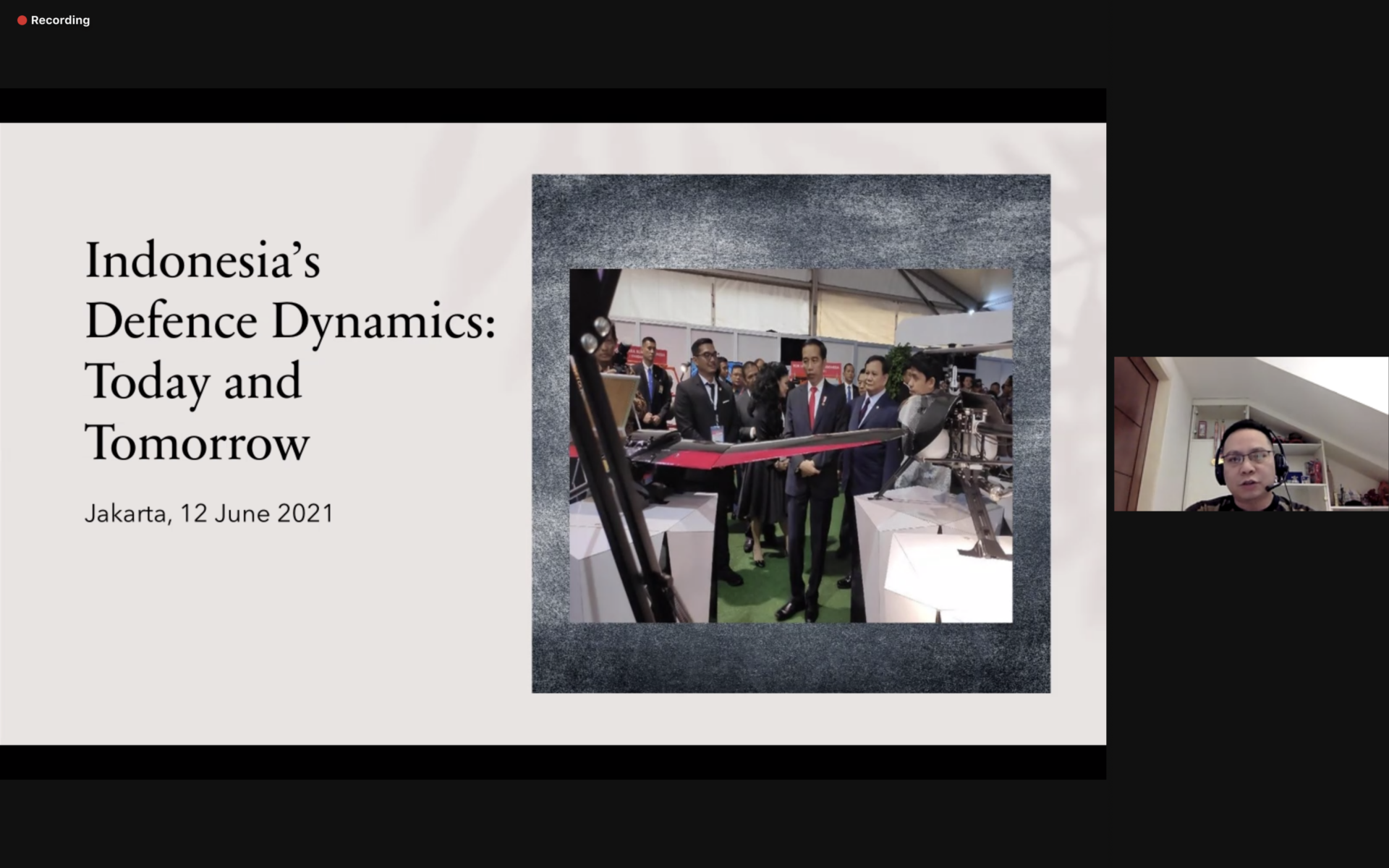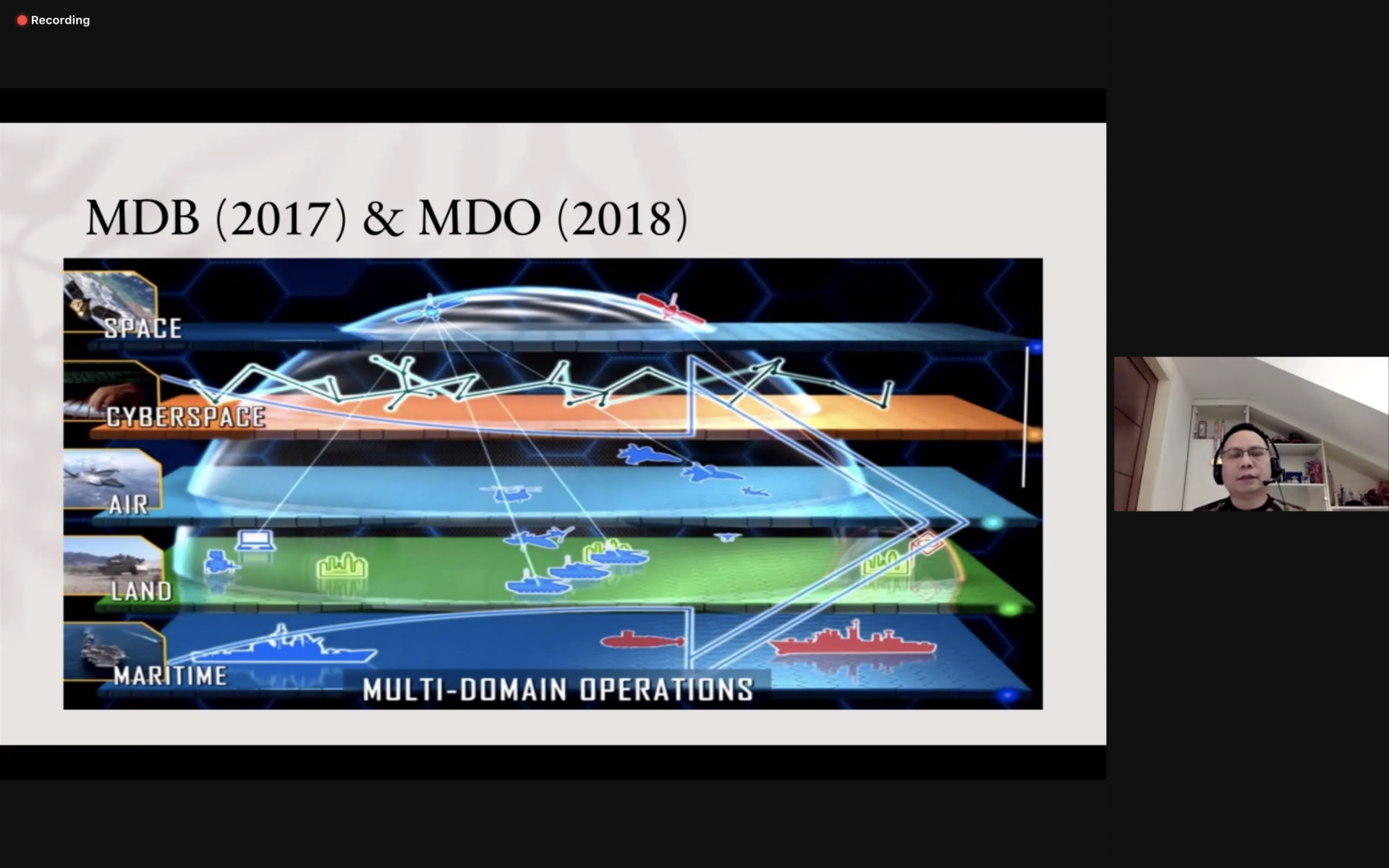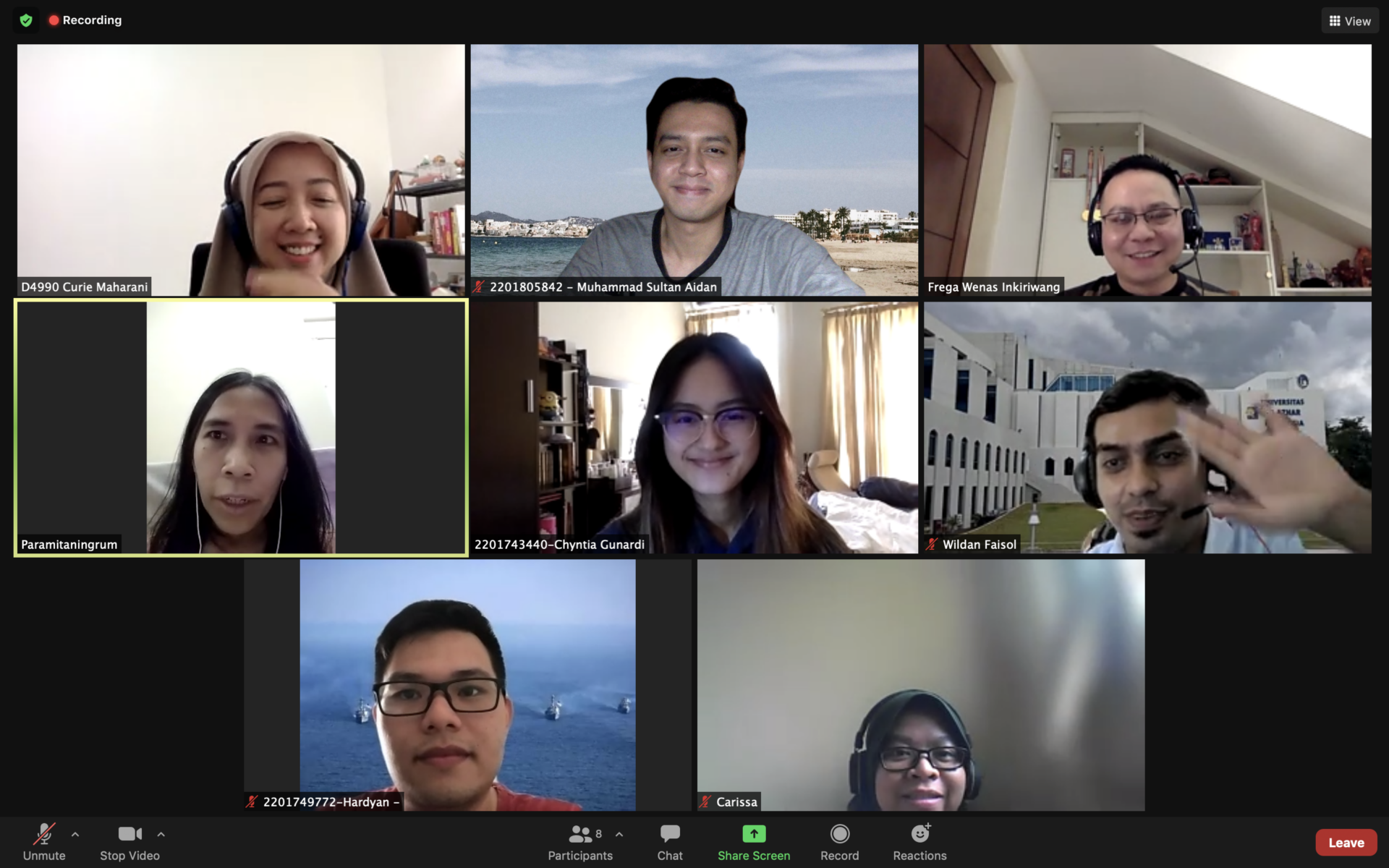Guest Lecture on Indonesia’s Defense Dynamics: Today and Tomorrow [ENG]
On Saturday, 12th June 2021, the Department of International Relations at Binus University held a guest lecture as a part of the Indonesian Defense Strategy course. Taking “Indonesia’s Defense Dynamics: Today and Tomorrow” as the theme, the guest lecture was delivered by Frega Wenas Inkiriwang, M.I.R., M.M.A.S. from the London School of Economics and Political Science. Having a background as an officer in the Indonesian Army, Inkiriwang is a scholar soldier who is also a lecturer at Universitas Pertahanan Indonesia. Discussing the dynamics of Indonesia’s defense, the guest lecture was attended by International Relations Global Class students who take the course this semester and other external participants. The guest lecture was held virtually via Zoom for two hours.
The lecture began by defining defense where Inkiriwang highlighted national interests, including sovereignty, territorial integrity, and safety of the nations. Given a diverse array of definitions, it can be inferred that defense is a nation’s efforts in protecting the above-mentioned factors from any threat or interference from external parties. He continued by providing the evolution of threats to Indonesian defense. According to the latest Indonesian Ministry of Defense’s White Paper, military, non-military, and hybrid threats are deemed as prominent aspects that the Indonesian Defense system needs to counter in ensuring national security. Facing a rapid pace of threat evolution, Inkiriwang explained the military revolution as a means of counterbalance. With the advancement of technology, the Indonesian defense still highly relies on maritime, land, and air domain operations despite its effort in cyberspace establishment.
As society lives in an era where technological advances are common, a new form of conflict has emerged. Inkiriwang elaborated the emergence of virtual societal warfare where society has been targeted to create instability of national security through this means. He argued that such warfare aims to seek supremacy from potential rivals, leading to social fragmentation. Such fragmentation is caused by disinformation, fake news, manipulation, and propaganda with the internet’s presence. Hence, Inkiriwang believes that there is an urgency to re-actualize the Indonesian defense’s strategy. He emphasizes the need to reconfigure the way society perceives defense. Aligned with a Latin adage, Si Vis Pacem Para Bellu—meaning “if you want peace, prepare for war”—he pointed out the importance of defense as supporting the lead government department, making it no longer the last resort option.
From the dynamics of Indonesian defense, Inkiriwang provided some reflections for its future. Given the evolution of threats to Indonesia’s national security, he suggested a defense strategy formulation. In terms of means, he emphasized the importance of mandatory participation of society to reserve in the military. Nonetheless, such an idea seems contrasting to the availability of resources. Considering that solely less than 1% of the national budget is allocated to defense, he suggests the leverage of defense budget to 2-3%, hence making the realization of the idea. In terms of threat identification, Inkiriwang pointed the flaw within the Indonesian government in articulating threats, creating ambiguity to potential rivals. Despite having ‘Bebas Aktif’ foreign policy, he believes that it does not necessarily imply neutrality. Inkiriwang exemplified how President Soekarno implemented the policy whilst fiercely articulating potential external threats.
In the question-and-answer session, some discussions on threat measurement, the defense procurement with Russia issue, and the Indonesian defense system’s response to the proliferation of virtual societal warfare done by extremists were being discussed. All in all, the guest lecture was an informative session in learning the dynamics of Indonesian defense, giving several insights on how our country’s defense responds to the past, current, and future threats to ensure national security.






Comments :